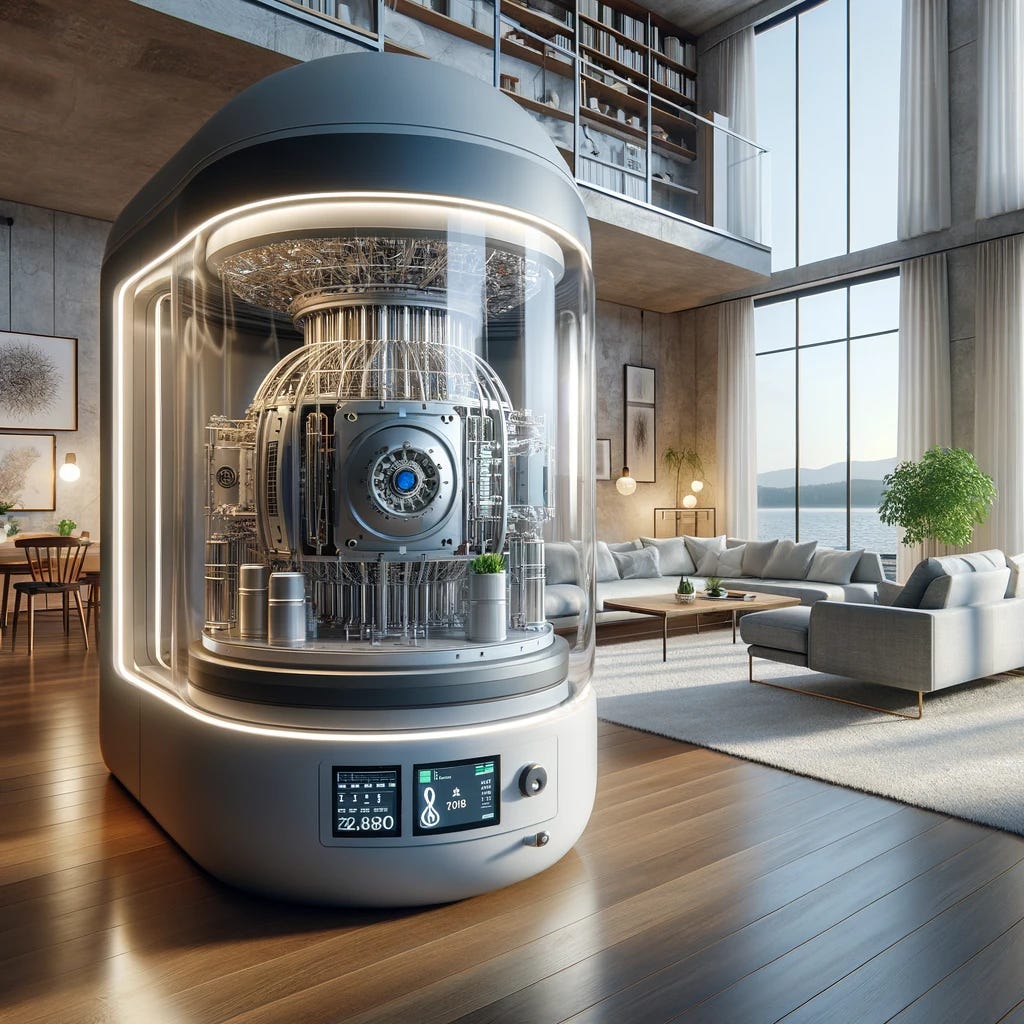Here is a crazy idea: what if we had thorium-based nuclear reactors at home?
In an age where sustainable and independent energy solutions are increasingly sought after, a radical idea has been making rounds: what if we could power our homes with mini nuclear reactors, specifically those fueled by thorium instead of uranium? This concept, while seemingly straight out of science fiction, deserves a closer look in light of our growing energy needs and environmental concerns.
Understanding Mini Nuclear Reactors
The notion of mini nuclear reactors, also known as Small Modular Reactors (SMRs), is not new. These are scaled-down versions of traditional nuclear power plants designed for smaller energy grids or industrial sites. The idea of shrinking this technology further to power a single family household introduces a fascinating yet complex proposition.
Feasibility and Self-Sufficiency
Technically, developing a small, household-sized nuclear reactor is feasible. If realized, such a reactor could provide a continuous and stable power supply, making a household entirely self-sufficient in terms of energy needs. However, the journey from feasibility to practical implementation is laden with significant challenges.
The Thorium Twist
Switching the conversation from uranium to thorium as a fuel source adds an interesting dimension. Thorium reactors, lauded for their safety benefits, produce less long-lived radioactive waste than their uranium counterparts. They also pose a lower risk of nuclear proliferation and utilize a resource that is more abundant and potentially cheaper than uranium.
The Array of Challenges
Despite these advantages, several hurdles stand in the way:
1. Safety Concerns: Nuclear energy, irrespective of the fuel source, necessitates rigorous safety measures and emergency protocols to prevent accidents and manage waste.
2. Regulatory and Oversight Hurdles: The use of nuclear technology, especially in a residential context, requires stringent regulatory oversight to ensure safety and compliance with international treaties.
3. High Costs: The initial setup and maintenance of a mini nuclear reactor are likely to be prohibitively expensive for individual households.
4. Public Perception: Nuclear energy often faces public opposition, rooted in concerns over safety and environmental impact.
5. Waste Management: Safe disposal of nuclear waste, even in smaller quantities, remains a significant challenge.
6. Technical and Developmental Barriers: Thorium reactor technology is still in its developmental stages and is not as mature or commercially viable as uranium-based nuclear technology.
Looking to the Future
While the idea of thorium-based nuclear reactors for home use is intriguing and holds certain advantages, it remains largely theoretical. The transition from large-scale nuclear power plants to mini reactors suitable for home use is a monumental task, fraught with technical, economic, regulatory, and social challenges.
In conclusion, the prospect of thorium-based mini nuclear reactors powering our homes is a thought-provoking one. It opens up discussions about the future of energy, the role of nuclear power, and the balance between technological advancement and environmental responsibility. While currently more of a theoretical exploration than a practical solution, it highlights the ongoing quest for innovative and sustainable energy sources in our ever-evolving world
.


